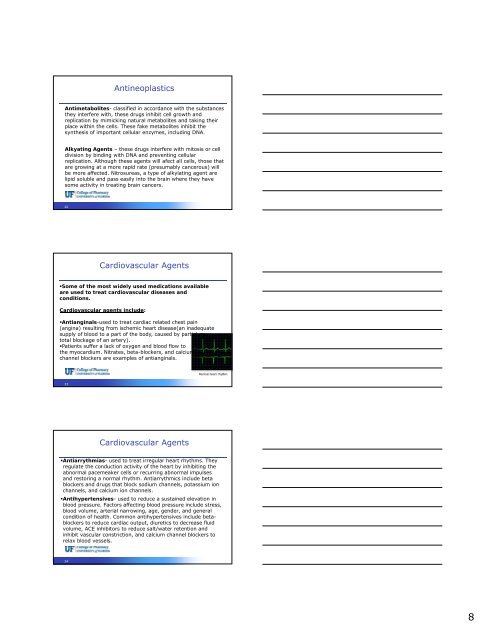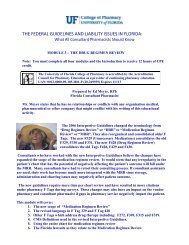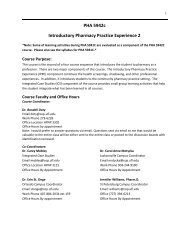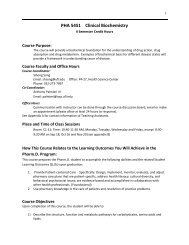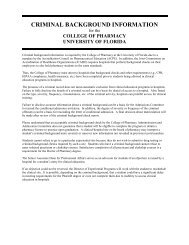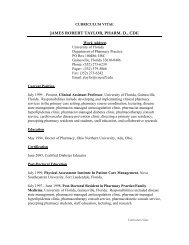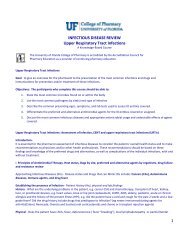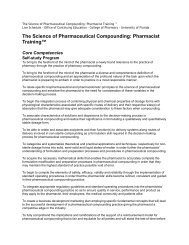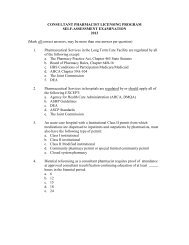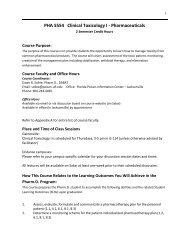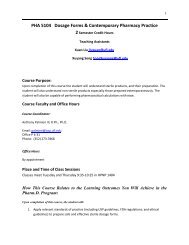Drug Classifications
Drug Classifications
Drug Classifications
Create successful ePaper yourself
Turn your PDF publications into a flip-book with our unique Google optimized e-Paper software.
Antineoplastics<br />
Antimetabolites- classified in accordance with the substances<br />
they interfere with, these drugs inhibit cell growth and<br />
replication by mimicking natural metabolites and taking their<br />
place within the cells. These fake metabolites inhibit the<br />
synthesis of important cellular enzymes, including DNA.<br />
Alkyating Agents – these drugs interfere with mitosis or cell<br />
division by binding with DNA and preventing cellular<br />
replication. Although these agents will afect all cells, those that<br />
are growing at a more rapid rate (presumably cancerous) will<br />
be more affected. Nitrosureas, a type of alkylating agent are<br />
lipid soluble and pass easily into the brain where they have<br />
some activity in treating brain cancers.<br />
22<br />
23<br />
Cardiovascular Agents<br />
Some of the most widely used medications available<br />
are used to treat cardiovascular diseases and<br />
conditions.<br />
Cardiovascular agents include:<br />
Antianginals-used to treat cardiac related chest pain<br />
(angina) resulting from ischemic heart disease(an inadequate<br />
supply of blood to a part of the body, caused by partial or<br />
total blockage of an artery).<br />
Patients suffer a lack of oxygen and blood flow to<br />
the myocardium. Nitrates, beta-blockers, and calcium<br />
channel blockers are examples of antianginals.<br />
24<br />
Cardiovascular Agents<br />
Antiarrythmias- used to treat irregular heart rhythms. They<br />
regulate the conduction activity of the heart by inhibiting the<br />
abnormal pacemeaker cells or recurring abnormal impulses<br />
and restoring a normal rhythm. Antiarrythmics include beta<br />
blockers and drugs that block sodium channels, potassium ion<br />
channels, and calcium ion channels.<br />
Antihypertensives- used to reduce a sustained elevation in<br />
blood pressure. Factors affecting blood pressure include stress,<br />
blood volume, arterial narrowing, age, gender, and general<br />
condition of health. Common antihypertensives include betablockers<br />
to reduce cardiac output, diuretics to decrease fluid<br />
volume, ACE inhibitors to reduce salt/water retention and<br />
inhibit vascular constriction, and calcium channel blockers to<br />
relax blood vessels.<br />
8


